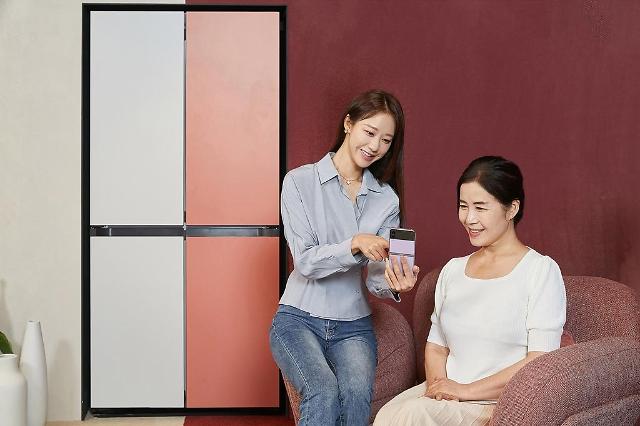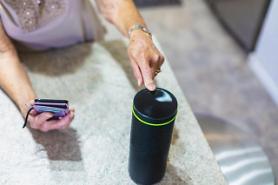
[Courtesy of Samsung Electronics]
The number of single-person households has been rapidly increasing in South Korea with a population of about 52 million. According to data released by the national statistics office, more than 1.7 million people are single households aged 65 or older in 2022. The proportion of old people who live alone is steadily increasing from 18.4 percent in 2015 to 19.5 percent in 2022.
According to Samsung on August 9, the family care service can analyze the life signs of its owner by checking the number of times the doors of a smart refrigerator were opened. If other family members receive an alarm from the smart fridge, they can remotely check for movement inside the house using a Samsung internet of things (IoT) camera hooked onto the home's internet network. When the owner's under distress or in need of help, he or she can shout "Hi Bixby, help!" and the family service will contact all pre-registered family members.
"Due to the increasing proportion of single-person households, the care function of home appliances is becoming more crucial. We will develop SmartThings home life services so that consumers can receive many different services through home appliances," Samsung home appliance official Yoo Mi-young was quoted as saying.
The number of lonely deaths also skyrocketed to 2,880 in 2020 from 1,669 in 2015. To prevent tragic lonely deaths, South Korea has adopted various technologies to prevent lonely death such as IoT sensors that can detect temperature, humidity and body movements in real-time.
In June 2021, KT, the biggest telecom company in South Korea, provided AI speakers and IoT sensors to 100 single households in Gwangju some 268 kilometers (167 miles) south of Seoul. The telecom company would distribute speakers to some 500 households by the end of 2022. As of March 2020, Seoul has deployed 75,000 IoT sensors at the homes of single-household elderly people.
Copyright ⓒ Aju Press All rights reserved.




